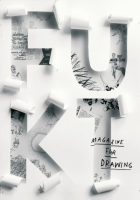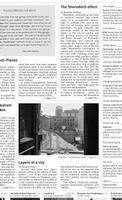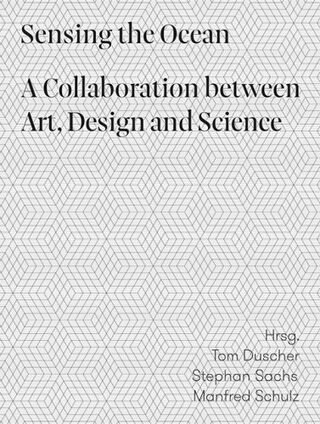
Mono Kultur #22
Ai Weiwei grew up under horrible conditions, living literally underground in a burrow in the Chinese regions of Manchuria and Xinjiang. Born in 1957 in Beijing, Ai Weiwei was the son of Ai Qing, a renowned poet denounced by the Chinese Communist Party and during the Cultural Revolution forced into exile in a labour camp. Under strong political control, his father had to clean public toilets (Quelle: Mono.Kultur).
In 1976, after Mao’s death, Ai Qing was rehabilitated and, two years later, Ai Weiwei enrolled in the Beijing Film Academy and became active as a member of the famous group ‘Stars’. These few self-taught artists made history in 1979 by displaying provocative and subversive works of art right on the steps of the National Gallery in Beijing. Soon after, they were an international sensation.
In order to become ‘another Picasso’, he set out in 1981 for the United States. But once in New York City, he wasn’t producing a particular body of art. He studied at the Parsons School of Design for a short period, lived next to Allen Ginsberg and was working as a card dealer besides other odd jobs. During his 12 years in the US, he documented his life there with thousands of photos.
Ai Weiwei returned to Beijing in 1993, to the bedside of his dying father. Upon his arrival, he became a vital contributor to the new art scene in China. He published a series of books about the up-and-coming generation of artists in China and even co-curated with Feng Boyi the exhibition Fuck Off in Shanghai in 2000, showing his and others’ contemporary works of art within the country. Besides his photography, Ai Weiwei’s work during this period involved experimenting with traditional objects and handcraft. One result of his experimentation with that subject matter was his famous piece Dropping of a Han Dynasty Vase.
In 1999, he completed his house and studio in the suburbs of Beijing without having any prior training in architecture. Weiwei could not have known then that the project would mark the starting point for almost 60 different architectural projects for his office, Fake Design, in the upcoming years, culminating in his collaboration with Swiss architects Herzog & de Meuron in designing the Olympic Stadium in Beijing. Shortly after this accomplishment, he refused all architectural work and became instrumental in curating architecture. He curated Ordos 100, a project of 100 villas to be built in the Mongolian desert by 100 chosen architects.
For the Documenta 12 in Kassel, Fake Design selected 1,001 Chinese citizens and invited them to come to Germany for a week. The whole process, from the selection to organization of the project, called Fairytale, was a huge undertaking: For almost every participant, it was the first trip outside of China, and the story behind each visitor was recorded in photos, film and interviews.




